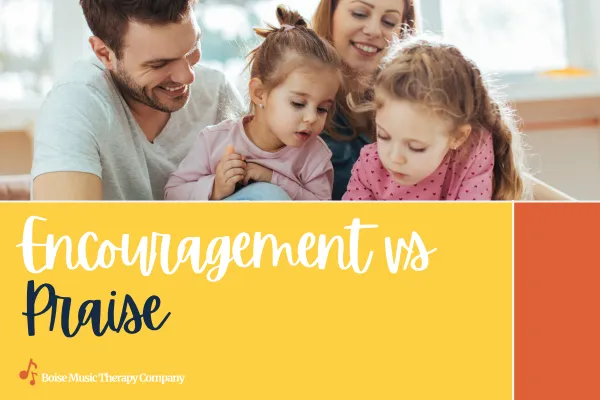
Encouragement vs Praise

Children want to feel a sense of belonging and acceptance. Encouragement helps them attain that belonging and acceptance.
The dictionary definition of praise is:
1. To express favorable judgment of
2. To glorify, especially by the attribution of perfection
3. An expression of approval
The definition of encouragement is:
1. To inspire with courage
2. To spur on: stimulate
Encouragement is about the child as a person while praise is about what the child achieved. Think about what you would think, feel, and decide about yourself if the following statements were said to you:
· I’m glad you listened to me.
· I like what you did!
· You did it just like I told you.
· You really know how to please me.
· Great! That’s what I expected.
· You are such a good boy/girl.
Now think about what you would think, feel, and decide about yourself if the following statements were said to you:
· You must be proud of yourself.
· How do you feel about it?
· You figured it out for yourself.
· I have faith in you to learn from mistakes.
· I love you no matter what.
· What do you think you should do? I trust your judgment.
Which statements would you rather hear? Which statements help you feel a sense of belonging and acceptance? Which statements empower you to continue to want to figure things out yourself and ask for help when needed? Encouragement helps foster a relationship of trust and support where a child can ask for help when needed. When speaking to your child think about what helps you the most to hear and say those things to your child.
Praise tells your child what you think and how you feel about them based on their achievement. Encouragement helps them problem solve and figure out the solutions to their own problems. Once they have done something-whether they accomplished their goal or not-you recognize how they feel about themselves and how to problem solve to try something new for the problem if they failed.
Praise invites children to change for others and become “approval junkies.” Encouragement invites children to change for themselves and rely on “inner direction.” The long-term effect of praise is to feel a dependence on others for validation. The long-term effect of encouragement is to feel self-confident and self-reliant.
This doesn’t mean that praise should never be given. Praise is not bad in itself. There is a time and a place for praise. Just remember to focus on encouragement.
What are some ways you can encourage your children?
